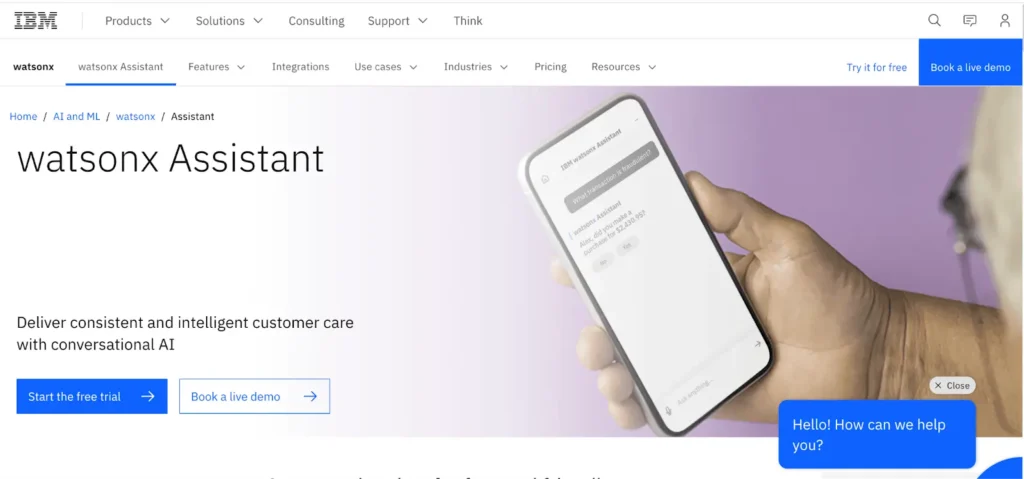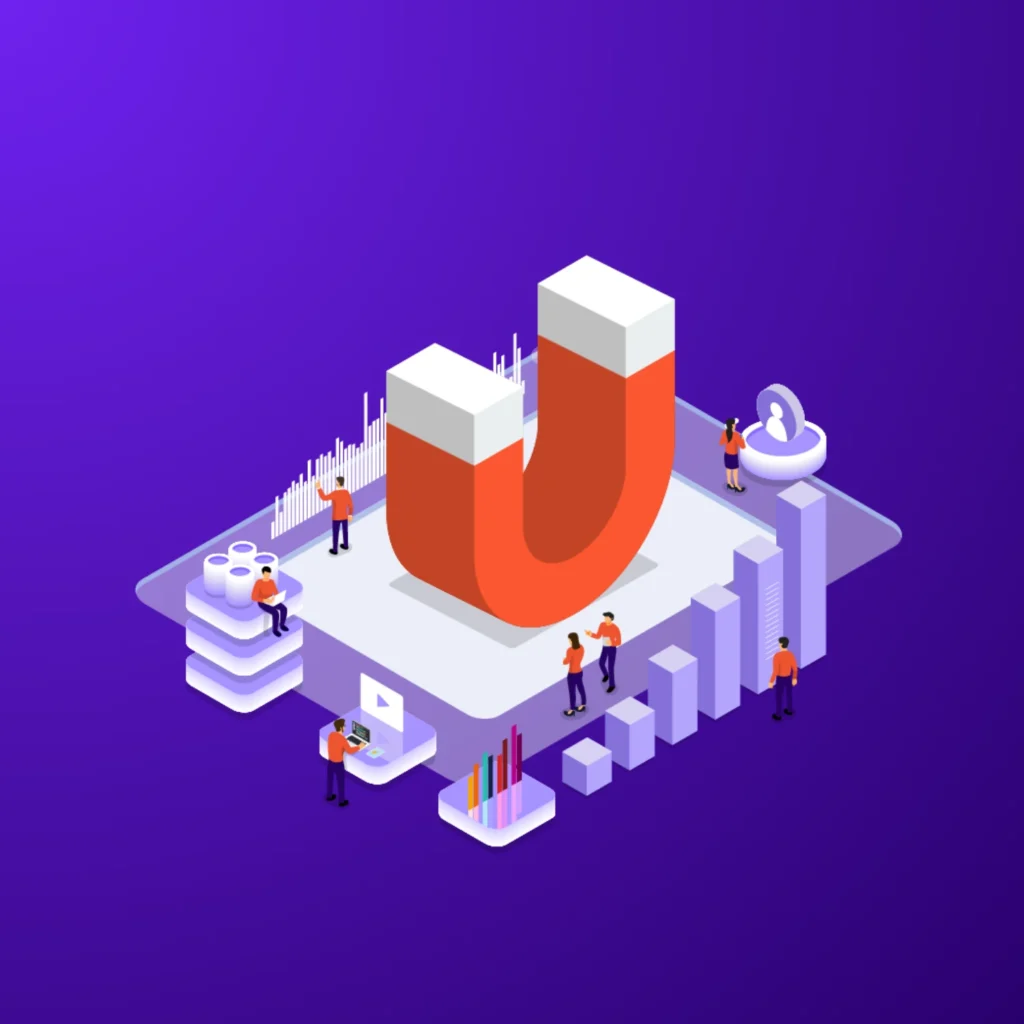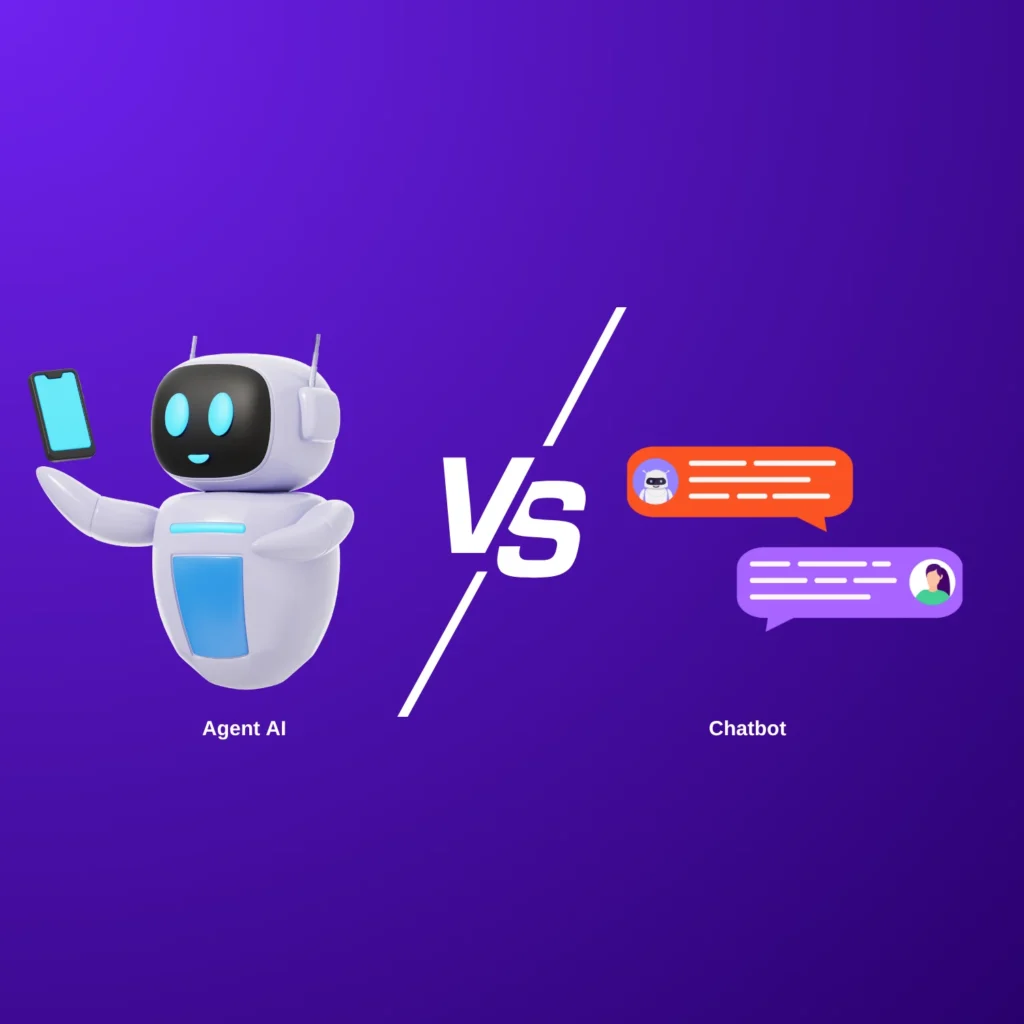Human experts say that intelligence is not just achieved by purely reflected mechanisms but also through the process of reasoning that operates on the internal representation of knowledge. You’ll find these intelligence techniques in machines in Knowledge-Based AI Agents (KBAs).
AI laced with knowledge-based agents is like a mastermind that drives superior decision-making in numerous areas, including the healthcare sector, finance industry, and many others.
In stark contrast to traditional AI models, knowledge-based AI agents depend heavily on huge datasets to leverage structured information and logical reasoning for solving your issues. It’s a unique approach that renders these bots indispensable for scenarios demanding domain-specific knowledge.
Let’s dive in to learn more!
Understanding Knowledge-Based Agents in AI
Knowledge-Based Agents in AI are systems that rely on a structured knowledge base to make decisions and solve problems. These agents represent information about the world in a formal, logical manner—often using techniques like propositional or first-order logic—and use this knowledge to infer new facts or plan actions. A key feature is their ability to separate knowledge from the reasoning process, enabling updates or expansions to the knowledge base without altering the reasoning mechanism. They typically consist of two main components: the knowledge base (KB), which stores facts and rules, and an inference engine, which applies logical reasoning to draw conclusions or take actions based on the stored knowledge.

Key Components of Knowledge-Based Agents
A knowledge-driven AI system has tow key components forming its base:
The Knowledge Base (KB) is the repository where a knowledge-based agent stores all its information about the world. This includes facts, rules, and relationships, often represented in a structured format like propositional or first-order logic. For example, the KB might contain statements such as “All humans are mortal” or “Socrates is a human,” which can then be used to infer new information, like “Socrates is mortal.” The KB must be consistent (free of contradictions) and extensible, meaning new knowledge can be added without disrupting existing information. Updating the KB allows the agent to adapt to new scenarios or learn from its environment, making it a dynamic and evolving resource.
The Inference Engine is the reasoning mechanism that allows the agent to use the knowledge stored in the KB to draw conclusions or make decisions. It employs logical methods such as deduction, induction, or abduction to infer new facts, verify hypotheses, or determine the best course of action. For instance, using the rules in the KB, the inference engine can deduce consequences of actions, identify potential conflicts, or predict future states. Its efficiency and accuracy depend on the complexity of the reasoning algorithms and the quality of the KB. Together, the inference engine and KB empower the agent to think critically and act intelligently in diverse and complex environments.
How Knowledge-Based Agents Work
Here are the various stages involved in the process that knowledge-based AI agents use to perform different tasks:
Step 1: Perception Mode
An AI agent first looks around to gather some information regarding its environment, using tools like user inputs (anything you type, say, or click on an interface), data-capturing devices (temperature sensors, cameras, GPS, etc.), APIs or System Feeds (to fetch data from external systems, databases, or web services), and structured or unstructured files to extract insights.
Step 2: Knowledge Retrieval
With the raw information handy, the bot accesses relevant facts and rules from its knowledge base to get a clear picture. Moving on, it:
- deciphers the context and identifies what stored knowledge applies to the given situation.
- matches perceived inputs to facts in order to extract relevant information.
- uses logical rules to interpret the data or get additional knowledge.
Step 3: Applying Logical Reasoning
The AI agent uses the inference engine to apply logical reasoning by comparing inputs or current facts to KB rules and consequently finding applicable ones.
It incorporates these rules through techniques like deductive reasoning (deriving specific conclusions from general rules, e.g., “All cats are mammals; therefore, this cat is a mammal”) or inductive reasoning (generalizing based on observed data, e.g., “This cat and that cat have whiskers, so all cats likely have whiskers”).
Finally, the bot derives new insights by processing the matched rules and inputs and resolves the conflict by prioritizing the most appropriate rules based on predefined criteria.
Step 4: Decision-Making Process
The agent carefully decides the best course of action based on its reasoning outcomes. It starts by evaluating all possible actions or responses, weighing the pros and cons of each. Then, it checks these options against predefined goals or priorities to ensure the chosen action aligns with its goal.
When faced with incomplete or uncertain information, the agent doesn’t panic and instead uses smart strategies, such as probabilistic reasoning or heuristics, to make an informed decision.
Step 5: Taking Action
In the final step, this intelligent agent picks the best action based on its reasoning and carries it out. For instance, sending instructions to another system, like placing an order or updating a database.
If the action involves informing someone or something, the agent uses its communication interface to:
- Respond to users via text, voice, or a graphical display
- Share data or decisions with other systems through APIs, emails, or notifications.
Once done, the agent may monitor the outcome to learn and adapt its next steps according to the feedback.
Why Knowledge-Based Agents Matter in AI
It may surprise you, but the role of knowledge-based agents in artificial intelligence is more crucial than you think. Their ability to reason things logically helps them understand and act on situations involving multiple variables and constraints.
For example, AI agents can optimize supply chain routes by analyzing distance, traffic, weather conditions, and shipping costs. The result? Informed decisions that improve efficiency and overall performance while reducing risks.
Moreover, AI agents are vital for Explainable AI (XAI) because they make decisions based on clear rules and facts. This transparency helps explain the decision-making process necessary for regulatory compliance and garnering user trust.
Knowledge-based agents are also very adaptable due to their modular nature. You can customize them for industries and tasks like healthcare, finance, and logistics. This makes them versatile and valuable across applications requiring domain-specific knowledge.
Key Benefits of Knowledge-Based Agents
Let’s highlight a few benefits of a knowledge-based AI system that can potentially improve your decision-making processes with its ability to provide deep industry-based insights:
Context-Aware Intelligence
KB AI agents excel at adapting to decisions and responding to specific contexts. They understand these contexts by examining the KB’s vast amount of stored knowledge.
For instance, you may need to alter your pricing strategies according to the current market scenario. AI agents can analytically scan local market conditions, seasonality, and customer preferences to help you adjust them in real time.
Reduced Dependency on Massive Data Sets
Unlike data-driven AI models that require extensive training data, knowledge-based agents work on pre-defined facts and rules. It reduces dependency on large datasets, making KB AI agents ideal where data is sparse or costly to collect, like in healthcare diagnostics or specialized logistics planning.
Improved Accuracy in Niche Applications
Knowledge-based agents specialize in domain-specific knowledge processing, providing better accuracy and reliability in decision-making. Therefore, they become ideal tools for finding precise solutions for specific industries like finance, law, or medicine, where understanding nuanced regulations, standards, or protocols is required.
Applications of Knowledge-Based Agents in AI
Pondering about industries that utilize the expertise of knowledge-based AI agents? Here are some sectors that can and do implement it for rapid growth:
Healthcare
Knowledge-based agents in the healthcare sector can assist in diagnostics and patient treatment planning. For example, these intelligent bots would analyze patient data from various sources, including electronic health records, lab results, and imaging reports, to identify patterns and recommend treatment options.
Plus, in oncology, they can give personalized treatment suggestions based on genetic profiles and treatment history, which would help doctors do better patient care about therapies.IBM’s Watson Health is one such industry example. It uses knowledge-based AI to analyze large amounts of medical data, comprising patient records, clinical trials, and medical literature, to provide personalized treatment plans and suggest therapies based on the latest research and patient-specific factors.

Finance and Banking
In finance, knowledge-based AI agents can monitor transaction patterns and detect unusual activities implying fraudulent behavior. It’s a bonus deal, as your compliance checks are sorted, too. These agents know if your financial firm is adhering to regulations and guidelines and can inform if they falter.
Plus, AI agents can even provide customized financial advice, including investment strategies or loan advice, after analyzing customer profiles and past interactions to offer tailored financial advice,
JPMorgan Chase, a famous finance firm, uses a knowledge-based AI assistant called ‘LLM Suite’ to help employees draft emails and reports. The program is already helping more than 60,000 employees with these tasks.
Retail and E-Commerce
When implemented in the retail industry, knowledge-based agents can analyze a customer’s purchase history, preferences, and browsing behavior to suggest relevant products. These agents are also used for customer support to help answer FAQs, guide users through the buying process, and resolve issues in real-time using a knowledge base of common problems and solutions.
Amazon utilizes knowledge-based AI for product recommendations and customer support. Its recommendation system leverages various data types, including the user’s purchase history, browsing behavior, and preferences, to suggest relevant products.
The AI also powers customer service interactions, providing quick, relevant responses to user queries and troubleshooting common issues based on a knowledge base of frequently asked questions.
Manufacturing
In manufacturing, knowledge-based agents optimize production processes and troubleshoot equipment. They monitor machinery in real time, detecting early signs of malfunction by analyzing data such as vibration, temperature, and operational status. Therefore, if a machine is operating outside of its normal parameters, this agent can quickly diagnose the issue and suggest corrective measures, alleviating downtime and preventing costly breakdowns.
General Electric (GE) is one industry leader that leverages knowledge-based AI in its industrial applications, including optimizing workflows and troubleshooting machinery issues. The company’s Predix platform summons AI agents to inspect machinery in real time, detect anomalies, and predict maintenance needs. Consequently, the downtime is minimized and the efficiency of manufacturing processes increases due to the actionable insights and corrective actions that the firm gets in real time.
Challenges of Implementing Knowledge-Based Agents
The challenges that many put you in a fix during KB AI implementation:
- Knowledge Acquisition Bottlenecks: One of the main challenges in implementing this intelligent system is collecting and organizing domain-specific knowledge. This is especially difficult when the information is scattered across various sources and formats. Careful curation and validation are the cure, but they are usually complicated and time-consuming.
- Scalability Problems: The main problem with KB AI scalability is maintaining steady performance with a growing number of knowledge bases. You have a huge database of rules and facts to manage, slowing your agent’s response time and making it harder to update the knowledge-driven AI system. To manage this, you’ll need optimization techniques like knowledge-base partitioning, hierarchical inference, caching mechanisms, etc.
- Integration with Your Data-Driven AI: It can be tricky to merge logical reasoning into machine since KB AI agents rely on predefined rules sets, and data-driven AI models use large datasets to learn new patterns. A thoughtful design is what you’ll require to integrate these two beasts. The design must harmonize the structured logic of KB systems with data-driven models’ flexible, adaptive nature.
The Future of Knowledge-Based Agents in AI
Knowledge-based agents (KBAs) are transforming industries by combining structured knowledge with AI reasoning capabilities. When you pair them with Large Language Models (LLMs), they create scalable AI hybrids capable of sophisticated decision-making.
Hybrid AI models leverage LLMs’ language understanding and KBAs’ structured reasoning to enhance problem-solving abilities.
For example, in healthcare, hybrid models can analyze patient data using KBAs, while LLMs give context-sensitive insights for precise diagnostics. Similarly, KBAs answer FAQs accurately, while LLMs generate natural conversational responses, enhancing user experience through intelligent customer support.
You’ll also see some new trends in knowledge representation soon. Modern KBAs are adopting cutting-edge tools like ontologies for standardizing knowledge domains (e.g., medical taxonomies in diagnostics), semantic graphs (used in e-commerce to recommend personalized products), and advanced Reasoning Frameworks (applied in fraud detection by figuring out complex patterns)
Moreover, there’s going to be a big-scale expansion in KBA applications across emerging industries:
- Intelligent tutoring systems integrate KBAs for adaptive learning, while LLMs personalize teaching styles in the online education sector.
- In legal tech, contract analysis can be automated with mKBAs for more accuracy, supplemented by LLMs for nuanced language interpretation.
- The sustainability sector could use KBAs to map supply chain emissions, while LLMs create actionable sustainability plans.
Overall, these advancements in KBAs are a gateway to more personalized customer experiences and efficient decision-making.
Conclusion
Knowledge-driven AI is transforming the way industries handle complex, domain-specific tasks. From advanced healthcare diagnostics to personalized customer experiences, this technology delivers speed and precision that often surpass human capabilities. It’s a game-changer for businesses looking to streamline operations and stay ahead in a competitive market.
DaveAI takes this to the next level by offering smart, knowledge-based solutions tailored to your industry. Whether you want to improve customer engagement, optimize processes, or drive rapid growth, DaveAI is like having an expert on your team—working around the clock to help your business thrive. Why not give it a try and see the difference it can make?
Storing facts and rules allows AI agents to retrieve information quickly and make decisions based on predefined knowledge.
KB agents are accustomed to predefined rules and logic, but machine learning models learn from data. Because of this, AI agents’ processes are more transparent than ML models with more opaque procedures.
Scalability can be a slight issue with KB AI models, as the difficulty in managing them increases with multiple knowledge bases. Some solutions that may enhance their performance include knowledge base partitioning and hierarchical inference.
If you take proper measures, like data encryption, access controls, and regular updates to protect against unauthorized access, KB AI systems are secure.
Healthcare (for diagnostics), finance (for fraud detection), retail (for personalized recommendations), and manufacturing (for workflow optimization), are some of the many industries that can leverage KB AI models for precision and domain-specific knowledge.
Shashank Mishra
Shashank is an experienced B2B SaaS writer for eCommerce, AI, productivity, and FinTech tools. His interests include reading, music, poetry, and traveling.



